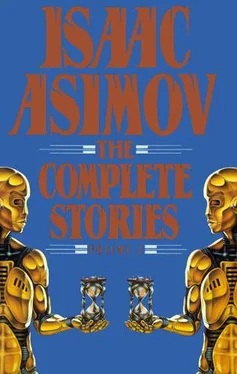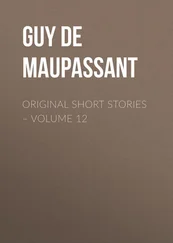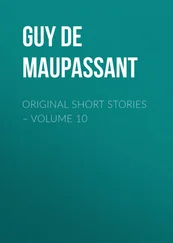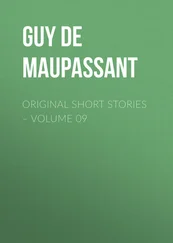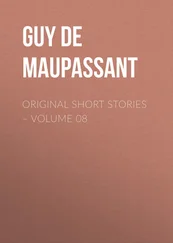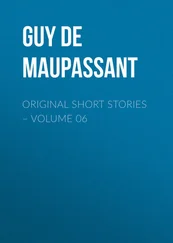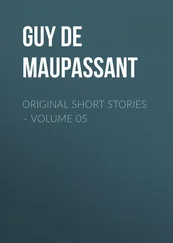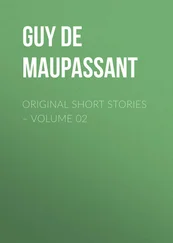Isaac Asimov - Short Stories Vol.1
Здесь есть возможность читать онлайн «Isaac Asimov - Short Stories Vol.1» весь текст электронной книги совершенно бесплатно (целиком полную версию без сокращений). В некоторых случаях можно слушать аудио, скачать через торрент в формате fb2 и присутствует краткое содержание. Жанр: Фантастика и фэнтези, на английском языке. Описание произведения, (предисловие) а так же отзывы посетителей доступны на портале библиотеки ЛибКат.
- Название:Short Stories Vol.1
- Автор:
- Жанр:
- Год:неизвестен
- ISBN:нет данных
- Рейтинг книги:4 / 5. Голосов: 1
-
Избранное:Добавить в избранное
- Отзывы:
-
Ваша оценка:
- 80
- 1
- 2
- 3
- 4
- 5
Short Stories Vol.1: краткое содержание, описание и аннотация
Предлагаем к чтению аннотацию, описание, краткое содержание или предисловие (зависит от того, что написал сам автор книги «Short Stories Vol.1»). Если вы не нашли необходимую информацию о книге — напишите в комментариях, мы постараемся отыскать её.
Short Stories Vol.1 — читать онлайн бесплатно полную книгу (весь текст) целиком
Ниже представлен текст книги, разбитый по страницам. Система сохранения места последней прочитанной страницы, позволяет с удобством читать онлайн бесплатно книгу «Short Stories Vol.1», без необходимости каждый раз заново искать на чём Вы остановились. Поставьте закладку, и сможете в любой момент перейти на страницу, на которой закончили чтение.
Интервал:
Закладка:
"Yes," said Foster dryly. He was a little surprised such a small consideration would stop the man.
"I used indirect methods-"
He had. Foster was amazed at the volume of correspondence dealing with small disputed points of ancient Mediterranean culture which somehow managed to elicit the casual remark over and over again: "Of course, having never made use of chronoscopy-" or, "Pending approval of my request for chronoscopic data, which appear unlikely at the moment-"
"Now these aren't blind questionings," said Potterley. "There's a monthly booklet put out by the Institute for Chronoscopy in which items concerning the past as determined by time viewing are printed. Just one or two items.
"What impressed me first was the triviality of most of the items, their insipidity. Why should such researches get priority over my work? So I wrote to people who would be most likely to do research in the directions described in the booklet. Uniformly, as I have shown you, they did not make use of the chronoscope. Now let's go over it point by point."
At last Foster, his head swimming with Potterley's meticulously gathered details, asked, "But why?"
"I don't know why," said Potterley, "but I have a theory. The original invention of the chronoscope was by Sterbinski-you see, I know that much -and it was well publicized. But then the government took over the instrument and decided to suppress further research in the matter or any use of the machine. But then, people might be curious as to why it wasn't being used. Curiosity is such a vice, Dr. Foster."
Yes, agreed the physicist to himself.
"Imagine the effectiveness, then," Potterley went on, "of pretending that the chronoscope was being used. It would then be not a mystery, but a commonplace. It would no longer be a fitting object for legitimate curiosity or an attractive one for illicit curiosity."
"You were curious," pointed out Foster.
Potterley looked a trifle restless. "It was different in my case," he said angrily. "I have something that must be done, and I wouldn't submit to the ridiculous way in which they kept putting me off."
A bit paranoid, too, thought Foster gloomily.
Yet he had ended up with something, paranoid or not. Foster could no longer deny that something peculiar was going on in the matter of neutrin-ics.
But what was Potterley after? That still bothered Foster. If Potterley didn't intend this as a test of Foster's ethics, what did he want?
Foster put it to himself logically. If an intellectual anarchist with a touch of paranoia wanted to use a chronoscope and was convinced that the pow-ers-that-be were deliberately standing in his way, what would he do?
Supposing it were I, he thought. What would I do?
He said slowly, "Maybe the chronoscope doesn't exist at all?"
Potterley started. There was almost a crack in his general calmness. For an
instant, Foster found himself catching a glimpse of something not at all calm.
But the historian kept his balance and said, "Oh, no, there must be a chronoscope."
"Why? Have you seen it? Have I? Maybe that's the explanation of everything. Maybe they're not deliberately holding out on a chronoscope they've got. Maybe they haven't got it in the first place."
"But Sterbinski lived. He built a chronoscope. That much is a fact."
"The books say so," said Foster coldly.
"Now listen." Potterley actually reached over and snatched at Foster's jacket sleeve. "1 need the chronoscope. I must have it. Don't tell me it doesn't exist. What we're going to do is find out enough about neutrinics to be able to-"
Potterley drew himself up short.
Foster drew his sleeve away. He needed no ending to that sentence. He supplied it himself. He said, "Build one of our own?"
Potterley looked sour as though he would rather not have said it point-blank. Nevertheless, he said, "Why not?"
"Because that's out of the question," said Foster. "If what I've read is
correct, then it took Sterbinski twenty years to build his machine and several
millions in composite grants. Do you think you and I can duplicate that
illegally? Suppose we had the time, which we haven't, and suppose I could
learn enough out of books, which I doubt, where would we get the money
' and equipment? The chronoscope is supposed to fill a five-story building, for
: Heaven's sake."
"Then you won't help me?"
"Well, I'll tell you what. I have one way in which I may be able to find out something-"
"What is that?" asked Potterley at once.
"Never mind. That's not important. But I may be able to find out enough to tell you whether the government is deliberately suppressing research by chronoscope. I may confirm the evidence you already have or I may be able to prove that your evidence is misleading. I don't know what good it will do you in either case, but it's as far as I can go. It's my limit."
Potterley watched the young man go finally. He was angry with himself. Why had he allowed himself to grow so careless as to permit the fellow to guess that he was thinking in terms of a chronoscope of his own. That was premature.
But then why did the young fool have to suppose that a chronoscope might not exist at all?
It had to exist. It had to. What was the use of saying it didn't?
And why couldn't a second one be built? Science had advanced in the fifty years since Sterbinski. All that was needed was knowledge.
Let the youngster gather knowledge. Let him think a small gathering would be his limit. Having taken the path to anarchy, there would be no limit. If the boy were not driven onward by something in himself, the first steps would be error enough to force the rest. Potterley was quite certain he would not hesitate to use blackmail.
Potterley waved a last good-by and looked up. It was beginning to rain.
Certainly! Blackmail if necessary, but he would not be stopped.
Foster steered his car across the bleak outskirts of town and scarcely noticed the rain.
He was a fool, he told himself, but he couldn't leave things as they were. He had to know. He damned his streak of undisciplined curiosity, but he had to know.
But he would go no further than Uncle Ralph. He swore mightily to himself that it would stop there. In that way, there would be no evidence against him, no real evidence. Uncle Ralph would be discreet.
In a way, he was secretly ashamed of Uncle Ralph. He hadn't mentioned him to Potterley partly out of caution and partly because he did not wish to witness the lifted eyebrow, the inevitable half-smile. Professional science writers, however useful, were a little outside the pale, fit only for patronizing contempt. The fact that, as a class, they made more money than did research scientists only made matters worse, of course.
Still, there were times when a science writer in the family could be a convenience. Not being really educated, they did not have to specialize. Consequently, a good science writer knew practically everything. . . . And Uncle Ralph was one of the best.
Ralph Nimmo had no college degree and was rather proud of it. "A degree," he once said to Jonas Foster, when both were considerably younger, "is a first step down a ruinous highway. You don't want to waste it so you go on to graduate work and doctoral research. You end up a thoroughgoing ignoramus on everything in the world except for one subdivisional sliver of nothing.
"On the other hand, if you guard your mind carefully and keep it blank of any clutter of information till maturity is reached, filling it only with intelligence and training it only in clear thinking, you then have a powerful instrument at your disposal and you can become a science writer."
Nimmo received his first assignment at the age of twenty-five, after he had completed his apprenticeship and been out in the field for less than three months. It came in the shape of a clotted manuscript whose language would impart no glimmering of understanding to any reader, however qualified, without careful study and some inspired guesswork. Nimmo took it apart and put it together again (after five long and exasperating interviews
Читать дальшеИнтервал:
Закладка:
Похожие книги на «Short Stories Vol.1»
Представляем Вашему вниманию похожие книги на «Short Stories Vol.1» списком для выбора. Мы отобрали схожую по названию и смыслу литературу в надежде предоставить читателям больше вариантов отыскать новые, интересные, ещё непрочитанные произведения.
Обсуждение, отзывы о книге «Short Stories Vol.1» и просто собственные мнения читателей. Оставьте ваши комментарии, напишите, что Вы думаете о произведении, его смысле или главных героях. Укажите что конкретно понравилось, а что нет, и почему Вы так считаете.
